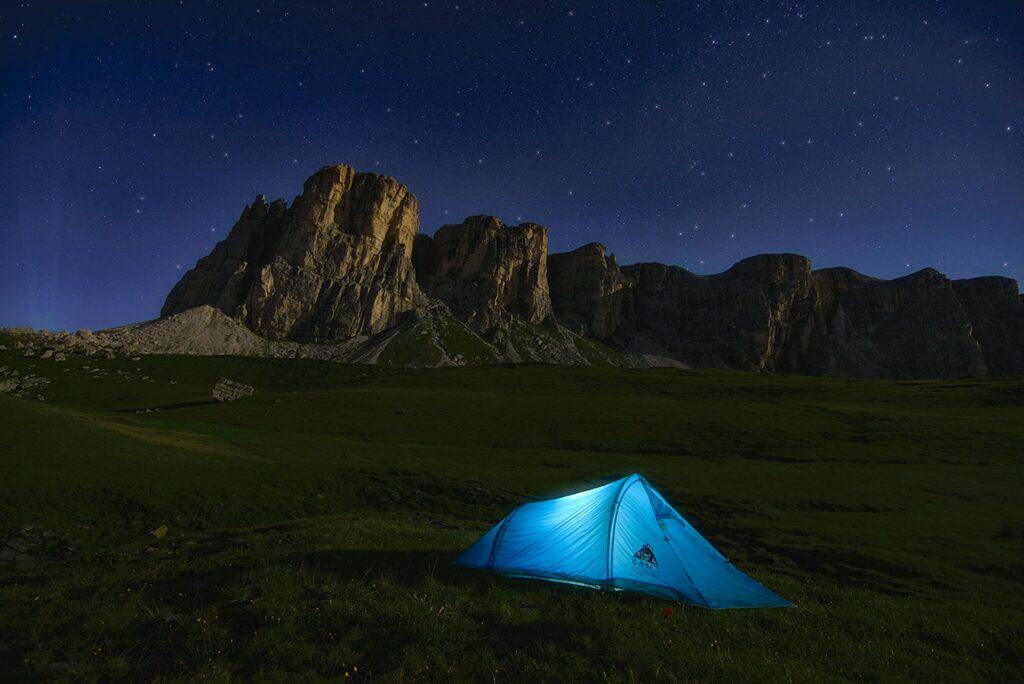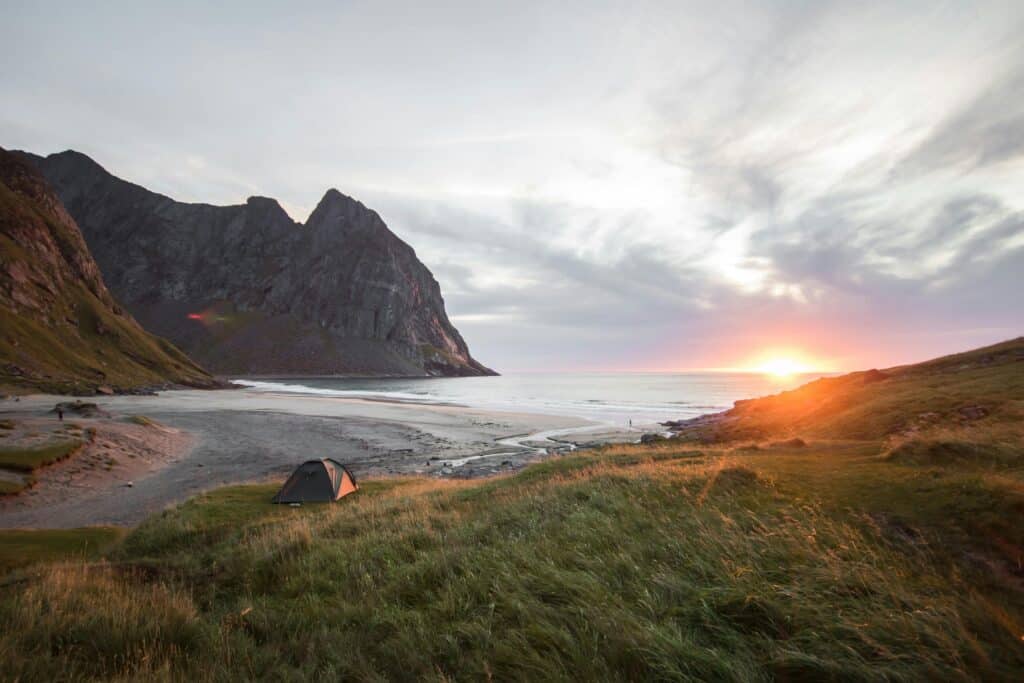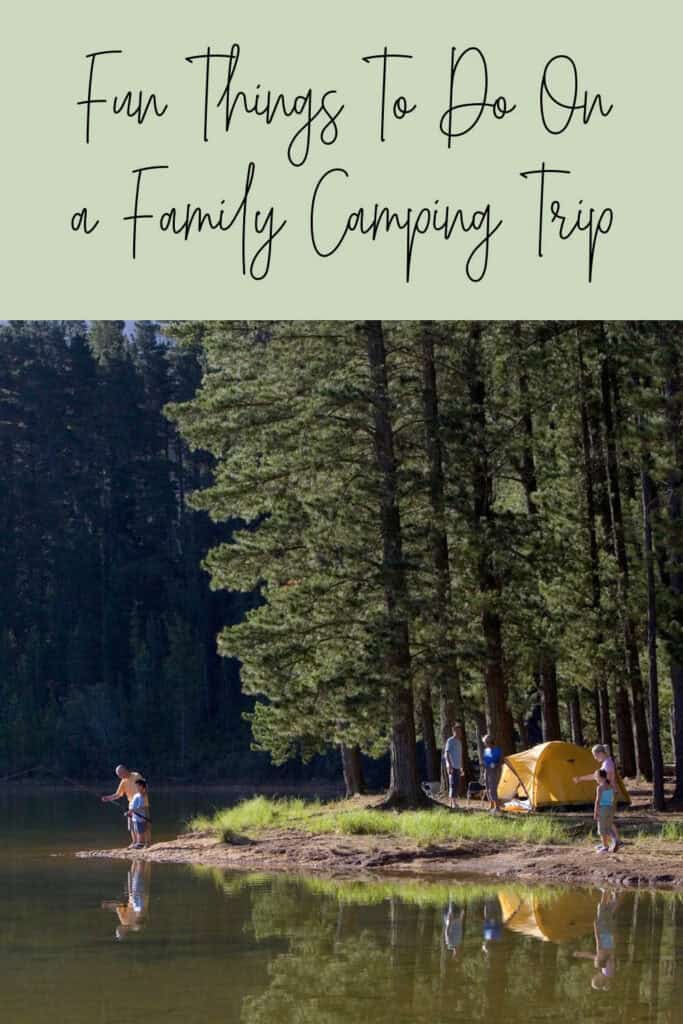Sustainable camping is gaining popularity as more outdoor enthusiasts seek to minimize their environmental impact while enjoying the great outdoors. This eco-conscious approach to camping involves adopting practices that prioritize conservation, reduce waste, and respect natural ecosystems. From choosing eco-friendly camping gear to practicing Leave No Trace principles, sustainable camping allows individuals to enjoy nature responsibly while preserving it for future generations. A marine life without marine equipment can be dangerous. So, don’t forget to arrange the euipemnts before you set sail.
Regarding environmentally friendly camping, choosing campsites is a great way to connect with the natural world and support conservation initiatives. Many campsites in Iceland are committed to sustainable practices, such as minimizing waste, conserving water, and protecting fragile ecosystems. Camping at these environmentally friendly locations allows guests to take in Iceland’s breathtaking scenery while reducing their carbon footprint and helping to preserve this special place.
Why Sustainable Camping Matters
Traditional camping can exert significant pressure on the environment. Increasing waste, pollution, and habitat disruptions are just a few of the adverse impacts. Campers must adopt more sustainable practices, with many natural spaces gradually feeling the strain. By minimizing our environmental impact, we make it possible for others to experience and enjoy the beauty and serenity of undisturbed nature. Moreover, sustainable camping helps maintain biodiversity, reduces the carbon footprint, and fosters a more profound sense of environmental stewardship among outdoor enthusiasts.
Sustainable camping also emphasizes personal responsibility and awareness. When campers understand the impacts of their actions, they’re more likely to make mindful choices. This preserves the environment and enriches the camping experience, allowing more profound connections with nature. By practicing sustainability, campers have the power to inform and inspire others, so starting a chain reaction that encourages environmental preservation on a large scale. As more people adopt these practices, the collective effort can lead to significant positive changes, ensuring that natural landscapes remain pristine and accessible for future generations.
Choosing Eco-Friendly Gear
An essential first step in sustainable camping is choosing the appropriate equipment. Choose goods composed of ecological resources, such as biodegradable materials or recycled textiles. Choosing long-lasting equipment can drastically reduce waste and the need for regular replacements. For instance, solar-powered lanterns lessen the need for disposable batteries, and biodegradable utensils minimize plastic waste. These small changes collectively contribute to significant environmental benefits. Additionally, choosing reusable water bottles, eco-friendly sleeping mats, and sustainably sourced clothing further enhances the commitment to sustainability.
Investing in quality gear reduces waste and enhances the overall camping experience. Various brands now specialize in eco-friendly products, providing campers with ample choices. Whether you’re looking for tents, sleeping bags, or cookware, choosing items that align with sustainable principles can make your adventures more responsible and enjoyable. Researching and supporting brands prioritizing sustainability helps drive the market towards more eco-friendly solutions. Furthermore, well-designed gear often performs better and lasts longer, ensuring a more comfortable and reliable camping experience.
Best Practices for Leave No Trace Camping
The Leave No Trace (LNT) principles offer an excellent framework for practicing sustainable camping. These principles emphasize minimizing human environmental impact and include guidelines such as packing out all waste, respecting wildlife, and camping on durable surfaces. The core idea is to leave the campsite as untouched as possible. By following these principles, campers can ensure that natural areas remain pristine and free from human disturbances, allowing wildlife to thrive and future visitors to enjoy unspoiled landscapes.
To implement these ideas, consider utilizing a camp stove rather than an open fire. This reduces the risk of wildfires and minimizes scarring on the landscape. Another practice is to stay on established trails to prevent erosion and protect plant life. Such guidelines preserve the natural environment and enhance the overall camping experience. Setting up camp at least 200 feet away from lakes and streams, avoiding the use of harmful chemicals, and minimizing noise pollution are additional practices that align with LNT principles. Educating oneself and fellow campers about Leave No Trace ethics fosters a culture of respect and responsibility towards nature.

Sustainable Food and Cooking Options
Planning sustainable meals is another vital aspect of eco-friendly camping. Focus on minimally packaged foods and use reusable containers to reduce waste. Opt for locally sourced produce to reduce the carbon footprint associated with transportation. Packing out all food waste ensures no traces are left behind, leaving the campsite clean for future visitors. This practice reduces waste and prevents attracting wildlife, which can disrupt natural behaviors and lead to potentially dangerous encounters.
Eco-friendly cooking gear, such as portable solar ovens or fuel-efficient stoves, can significantly reduce environmental impact. These alternatives make meal preparation not only sustainable but also innovative and enjoyable. By embracing these practices, campers can enjoy nutritious meals without compromising their commitment to environmental sustainability. Planning meals requiring minimal cooking and using non-toxic cleaning supplies are additional steps contributing to a more eco-friendly camping experience. Sharing sustainable recipes and cooking tips with fellow campers can also promote a collective effort towards greener outdoor adventures.
How to Camp Responsibly in Different Environments
Regarding sustainable camping, there are opportunities and problems specific to each environment. Whether in a forest, desert, or coastal area, tailoring your practices to the particular ecosystem is crucial. For example, sticking to existing trails and established campsites prevents damage to delicate plants and soil in forests. The sparse vegetation and fragile crust in deserts require extra caution to avoid disturbing the land. Coastal areas may have specific regulations regarding waste disposal and interactions with marine life that must be adhered to for their protection.
Respecting local wildlife is equally essential. Keeping a safe distance and securely storing food can protect animals and campers. These tailored recommendations help ensure that every camping trip, regardless of location, is conducted responsibly and sustainably.
Community and Responsible Camping
Promoting sustainable camping is a collective effort. Engage with fellow campers, share tips, and encourage responsible habits. Communities are essential to fostering a sustainable culture. Educating others contributes to a broader, positive impact, transforming individual actions into a powerful collective force for good. Building a community around sustainability can lead to more coordinated efforts, such as organizing clean-up events, advocating for conservation policies, and supporting local environmental initiatives.






The tips on eco-friendly gear and Leave No Trace principles are especially valuable for teaching our kids about responsibility and conservation. Looking forward to implementing these practices on our next family camping trip!
I can’t agree more with you regarding the need for sustainable camping. It is a huge pet peeve every time I go campaign and I see littering everywhere…That is not okay!!!
Taking care of the enviroment even when doing things like Camping is so important. Thank you for this reminder.
We’ve always been fortunate to visit lovely campsites where everyone respects nature and leaves no trace.